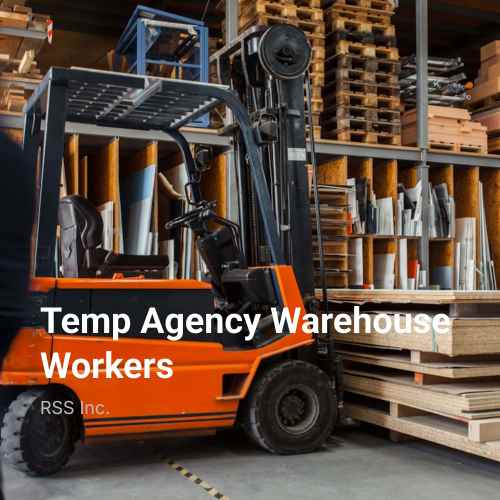If you’re considering a job that keeps you physically active and engaged in logistics, becoming a material handler might be the perfect career choice. Material handlers play a crucial role in ensuring smooth warehouse operations by moving, organizing, and managing goods. This article provides an in-depth look at the role, including job responsibilities, requirements, career prospects, and step-by-step guidance on how to enter this field.
A material handler, also known as a warehouse associate, is responsible for moving products, merchandise, and materials within supply chains. They work across industries such as manufacturing, shipping, and retail. Their duties often include both physical and administrative tasks, ensuring the timely and accurate movement of goods.
Material handlers earn an average annual salary of $36,873. Salaries can vary depending on factors such as experience, location, and specific job responsibilities.
Experience Level Average Annual Salary Entry-Level $30,000 – $34,000 Mid-Level $35,000 – $42,000 Senior-Level $43,000+According to the Bureau of Labor Statistics, material handler jobs are expected to grow by 6% between 2021 and 2031. This growth reflects the increasing demand for logistics professionals in e-commerce, manufacturing, and other sectors.
Earning certifications can improve job prospects:
Material handlers typically work in warehouses or factories. The specific environment depends on the industry:
The duties of a material handler encompass a wide range of responsibilities essential for efficient warehouse operations. Primarily, material handlers are tasked with moving, storing, and organizing goods within supply chains. They load and unload items from delivery trucks, transport materials to storage or production areas, and ensure goods are staged correctly for shipment. Other responsibilities include maintaining inventory records, using tools such as forklifts or pallet jacks, and adhering to safety protocols. Material handlers may also be involved in quality checks, waste management, and assisting inspectors to address any issues. These duties require physical stamina, organization, and communication skills to ensure warehouse operations remain productive and accurate.
The highest pay for a material handler can vary based on factors such as location, industry, and experience level. Senior-level material handlers or those working in specialized industries, such as hazardous material handling, can earn upwards of $50,000 to $60,000 annually. Additional certifications, such as forklift operation or HAZMAT endorsement, and experience with advanced inventory systems can also boost earning potential. Geographic location plays a role as well, with material handlers in metropolitan areas or regions with high-demand industries typically earning higher wages. For example, a material handler in a tech manufacturing hub may earn more than one in a rural logistics center.
Material handling involves the movement, protection, storage, and control of goods throughout supply chains. This work ensures that materials flow efficiently from suppliers to production areas and eventually to customers. Material handling includes both manual and automated processes, such as operating machinery to lift heavy items, recording inventory changes, and ensuring goods are safely packaged for transportation. The goal is to maintain an organized and efficient workflow that reduces costs, minimizes errors, and ensures timely deliveries.
While the roles of a material handler and warehouse worker overlap, they are not identical. Material handlers specifically focus on the movement and management of materials, often using specialized equipment like forklifts. Warehouse workers may have a broader range of responsibilities, including stocking shelves, cleaning the workspace, and fulfilling customer orders. Material handlers typically operate more in logistics and inventory management, whereas warehouse workers may engage more in order processing and general warehouse upkeep.
A material handler and a forklift operator are related but distinct roles. Forklift operators specialize in using forklifts to move heavy materials, often as a primary job function. Material handlers may operate forklifts but also perform additional tasks, such as inventory tracking, packing goods, and coordinating shipments. While forklift operation is a skill within the material handler’s role, it is not the sole responsibility, making the material handler’s position more versatile.
The difference between a material handler and a package handler lies in the scope of their work. Material handlers manage a variety of goods, including raw materials, production items, and consumer products, throughout supply chains. Package handlers, on the other hand, focus primarily on handling packages for delivery services, such as sorting, labeling, and loading parcels onto delivery vehicles. Material handlers often require more diverse skills and certifications, while package handlers’ tasks are typically more repetitive and focused.
Material handlers are often considered part of direct labor, especially in manufacturing and production settings. They contribute directly to the handling and movement of materials that are essential to the production process. By ensuring raw materials are available and finished goods are transported efficiently, material handlers support the core operations of a business. However, their classification can vary depending on the specific industry and organizational structure.

Environmental concerns have become a global priority, increasing the demand for professionals who can monitor, assess, and mitigate environmental hazards. One key player in...

Strategic Staffing Solutions During Strikes and Labor Disruptions Labor strikes and warehouse staffing shortages can quickly escalate into operational crises. When a unionized workforce...

Trends, Opportunities, and Workforce Challenges The demand for renewable energy has skyrocketed in recent years, making wind power a cornerstone of global clean energy...